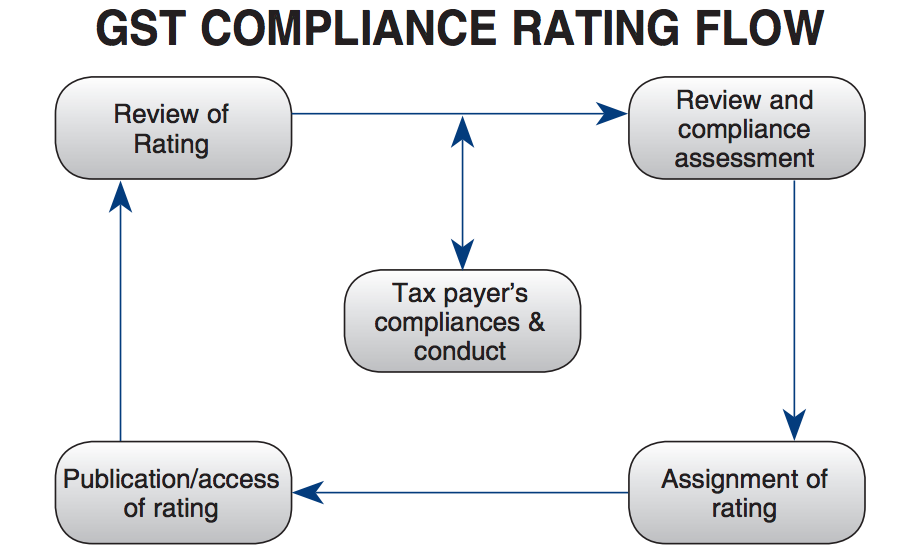Ahmedabad
(Head Office)Address : 506, 3rd EYE THREE (III), Opp. Induben Khakhrawala, Girish Cold Drink Cross Road, CG Road, Navrangpura, Ahmedabad, 380009.
Mobile : 8469231587 / 9586028957
Telephone : 079-40098991
E-mail: dics.upsc@gmail.com

Government’s new GST compliance measures
Background:
In two significant measures to curb tax evasion and increase compliance under the Goods and Services Tax (GST) regime;
The government has decided to lower the threshold for businesses to generate e-invoice for business-tobusiness (B2B) transactions, from Rs 10 crore to Rs 5 crore, and
It has rolled out the automated return scrutiny module for GST returns in a backend application for central tax officers.
What is automated return scrutiny module?
It will enable the officers to scrutinise GST returns of centre-administered taxpayers selected on the basis of data analytics and risks identified by the system.
It will facilitate interaction of officers with tax payers through GSTN portal. In other word, it will help in tax evasion.
What is e-invoicing?
e-Invoicing is a system where B2B (Business to Business) invoices and some other documents are electronically authenticated by the GSTN (Goods and Service Tax Network) for further use on the GST portal.
What does the e-invoicing envisage?
The GST Council in its 37th meeting in September 2019 had approved the standard of e-invoice with the primary objective to enable interoperability across the entire GST ecosystem. It facilitates common standard for all e-invoices.
With a uniform invoicing system, the tax authorities are able to pre-populate the return and reduce the reconciliation issues.
The GST authorities have pushed for implementation of this e-invoicing system which is expected to help to curb the actions of tax evaders and reduce the number of frauds as the tax authorities will have access to data in real-time.
E-invoicing was initially implemented for large companies with turnover of over Rs 500 crore, and within three years the threshold has now been lowered to Rs 5 crore.
Importance of Lowering e-invoice threshold:
Expands compliance mandate
More businesses registered so it will increase GST collections
It will curb tax evasion, broaden GST base
More data to tax authorities
By requiring more businesses to adopt e-invoicing, the government aims to reduce mismatch errors and fraudulent activities associated with the generation of fake invoices

Address : 506, 3rd EYE THREE (III), Opp. Induben Khakhrawala, Girish Cold Drink Cross Road, CG Road, Navrangpura, Ahmedabad, 380009.
Mobile : 8469231587 / 9586028957
Telephone : 079-40098991
E-mail: dics.upsc@gmail.com
Address: A-306, The Landmark, Urjanagar-1, Opp. Spicy Street, Kudasan – Por Road, Kudasan, Gandhinagar – 382421
Mobile : 9723832444 / 9723932444
E-mail: dics.gnagar@gmail.com
Address: 2nd Floor, 9 Shivali Society, L&T Circle, opp. Ratri Bazar, Karelibaugh, Vadodara, 390018
Mobile : 9725692037 / 9725692054
E-mail: dics.vadodara@gmail.com
Address: 403, Raj Victoria, Opp. Pal Walkway, Near Galaxy Circle, Pal, Surat-394510
Mobile : 8401031583 / 8401031587
E-mail: dics.surat@gmail.com
Address: 303,305 K 158 Complex Above Magson, Sindhubhavan Road Ahmedabad-380059
Mobile : 9974751177 / 8469231587
E-mail: dicssbr@gmail.com
Address: 57/17, 2nd Floor, Old Rajinder Nagar Market, Bada Bazaar Marg, Delhi-60
Mobile : 9104830862 / 9104830865
E-mail: dics.newdelhi@gmail.com